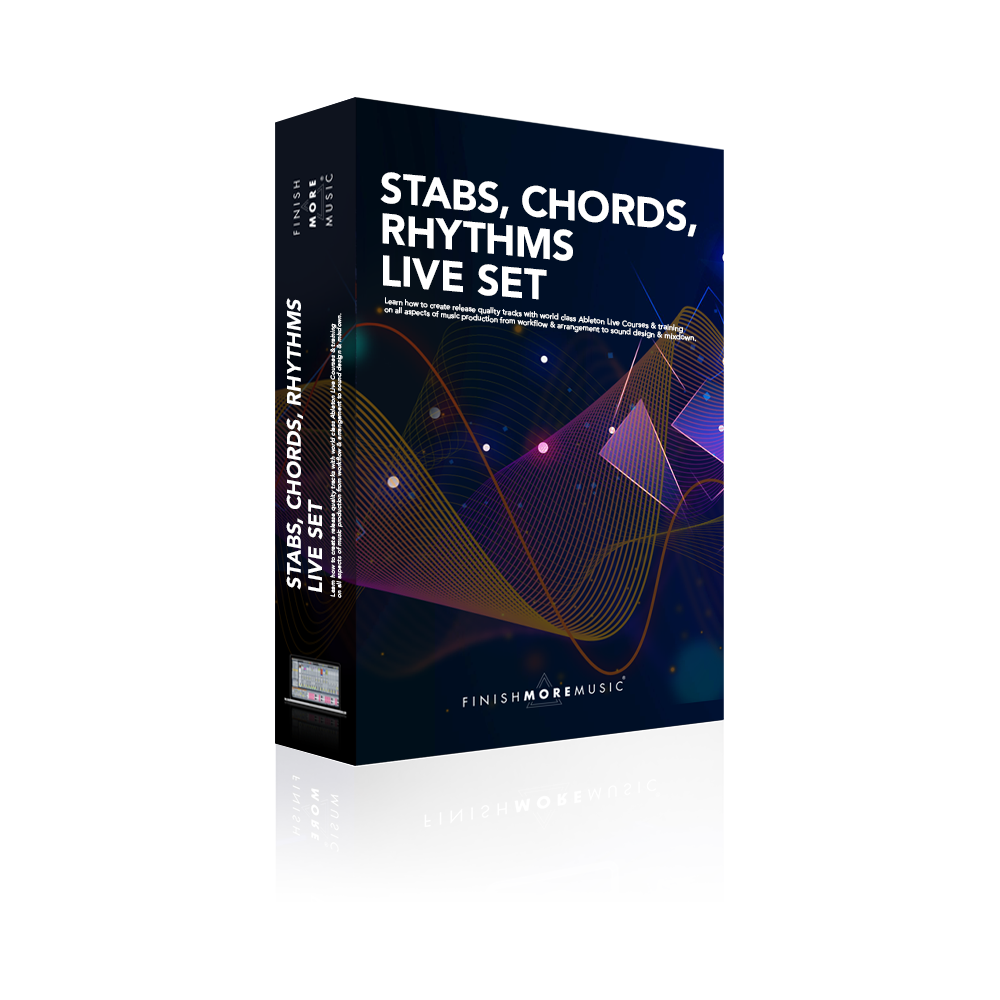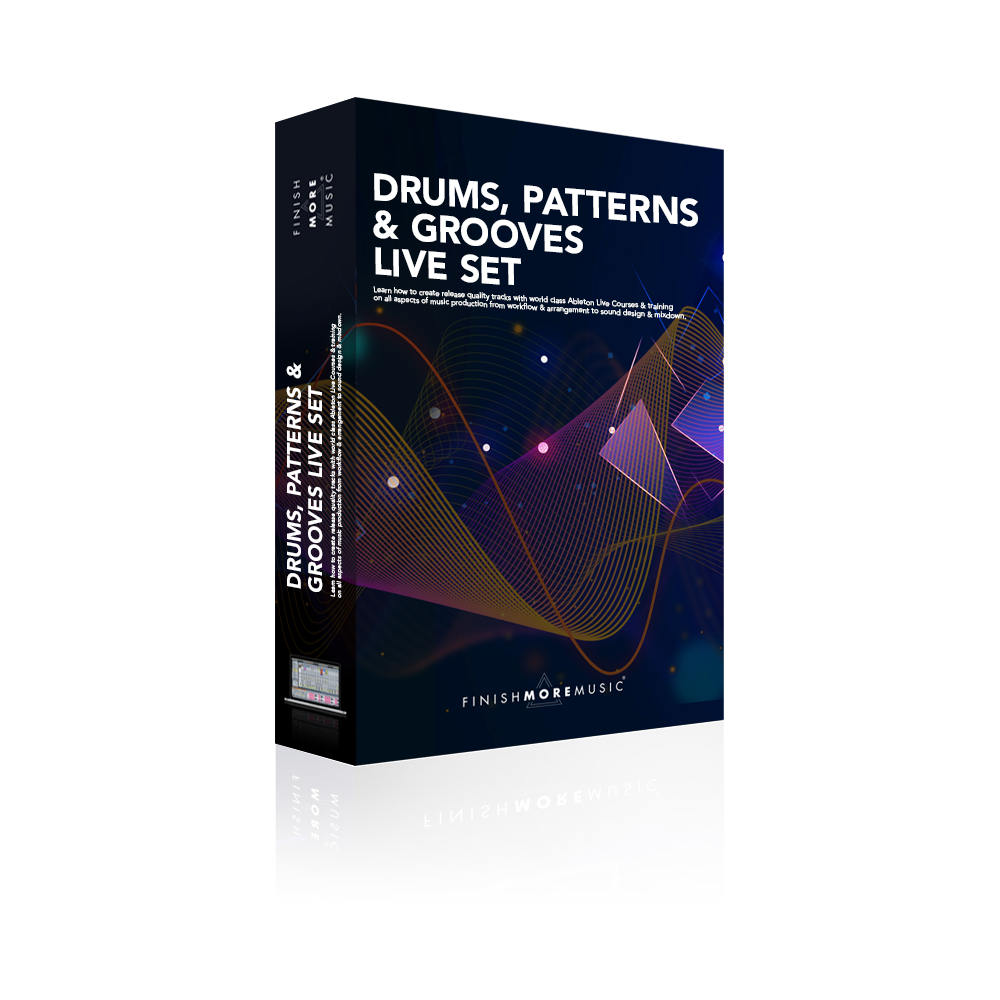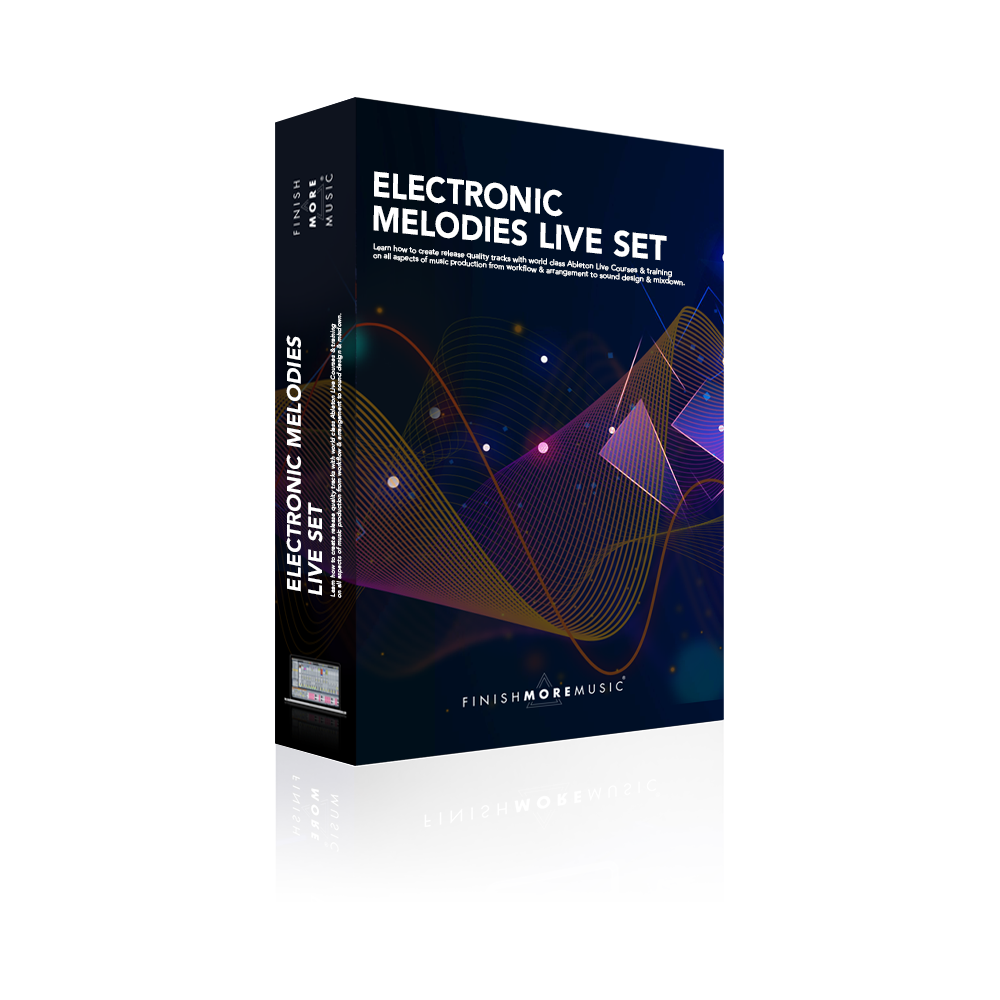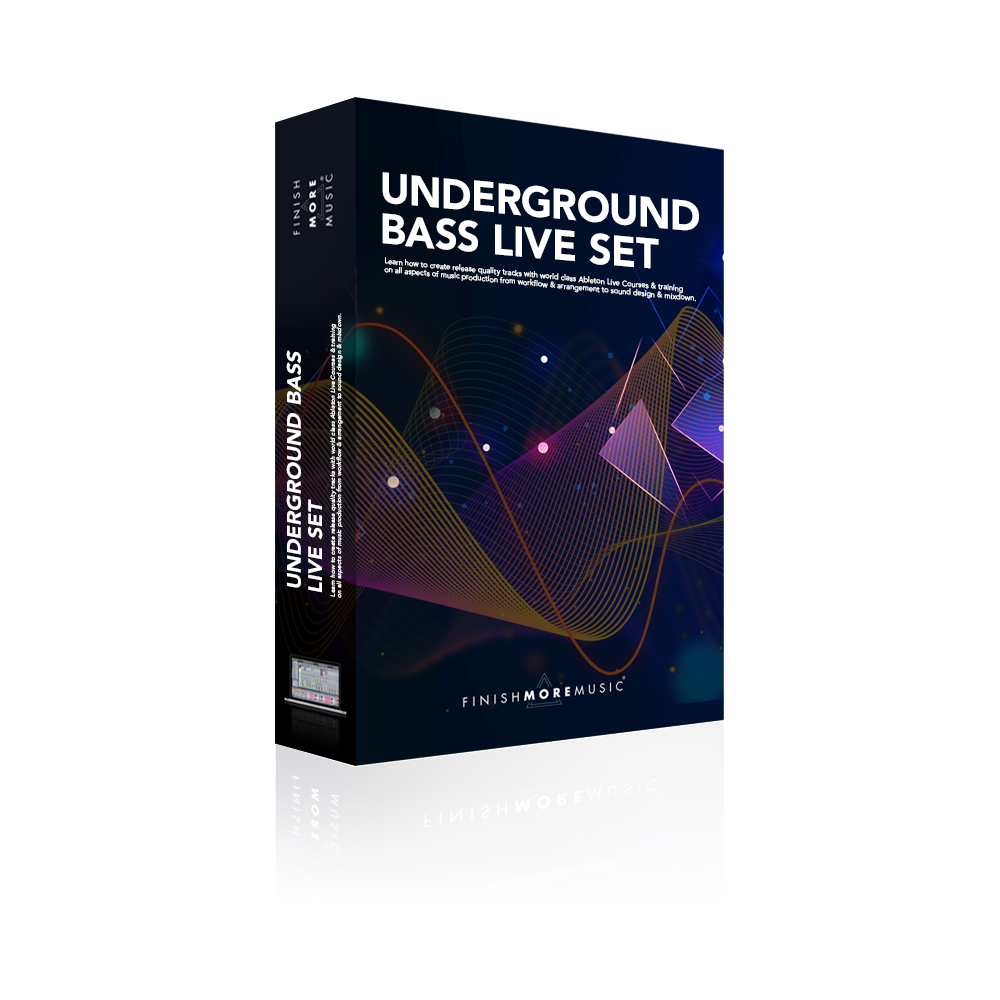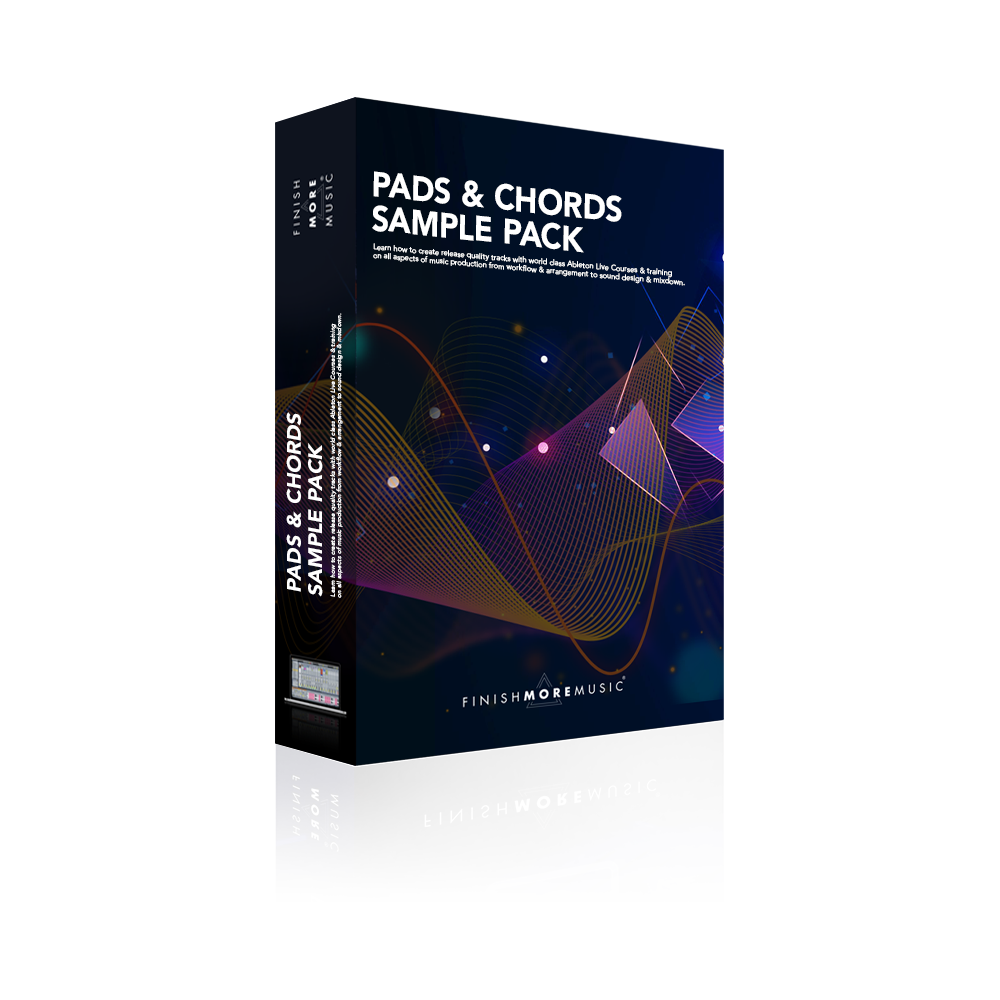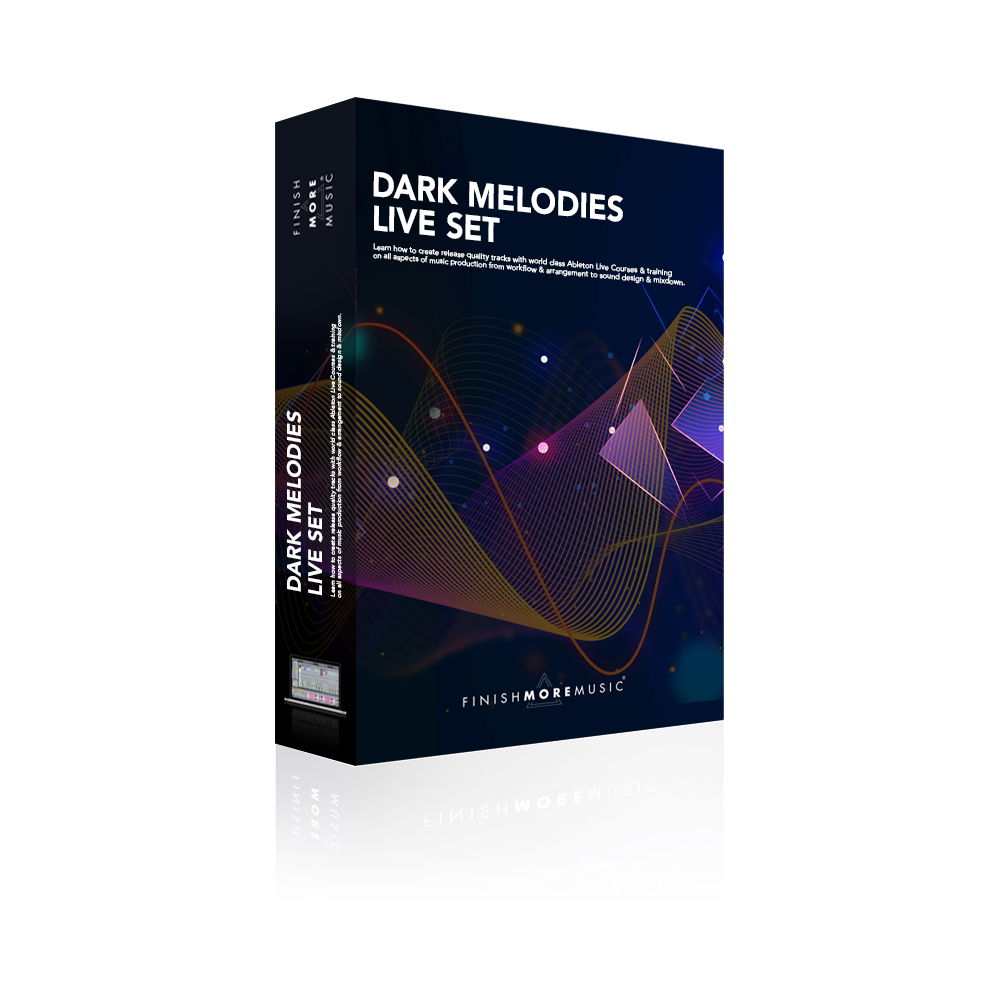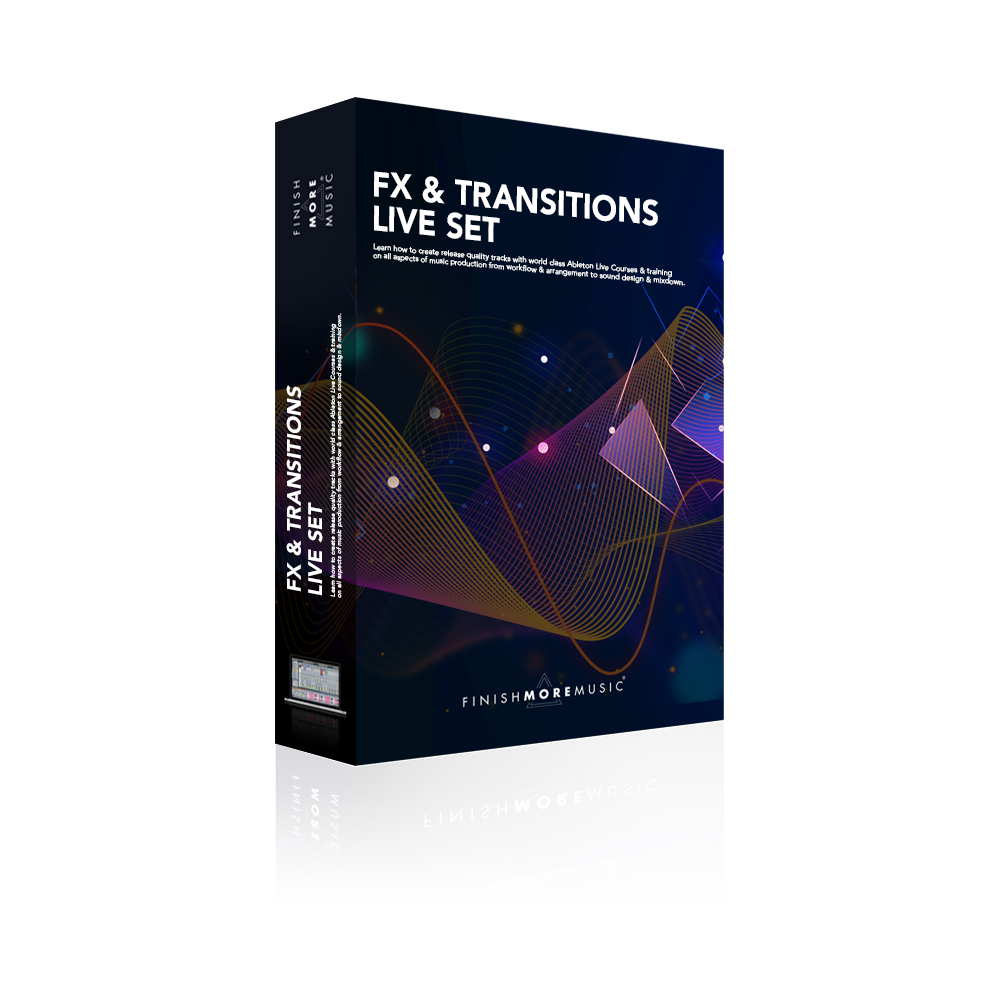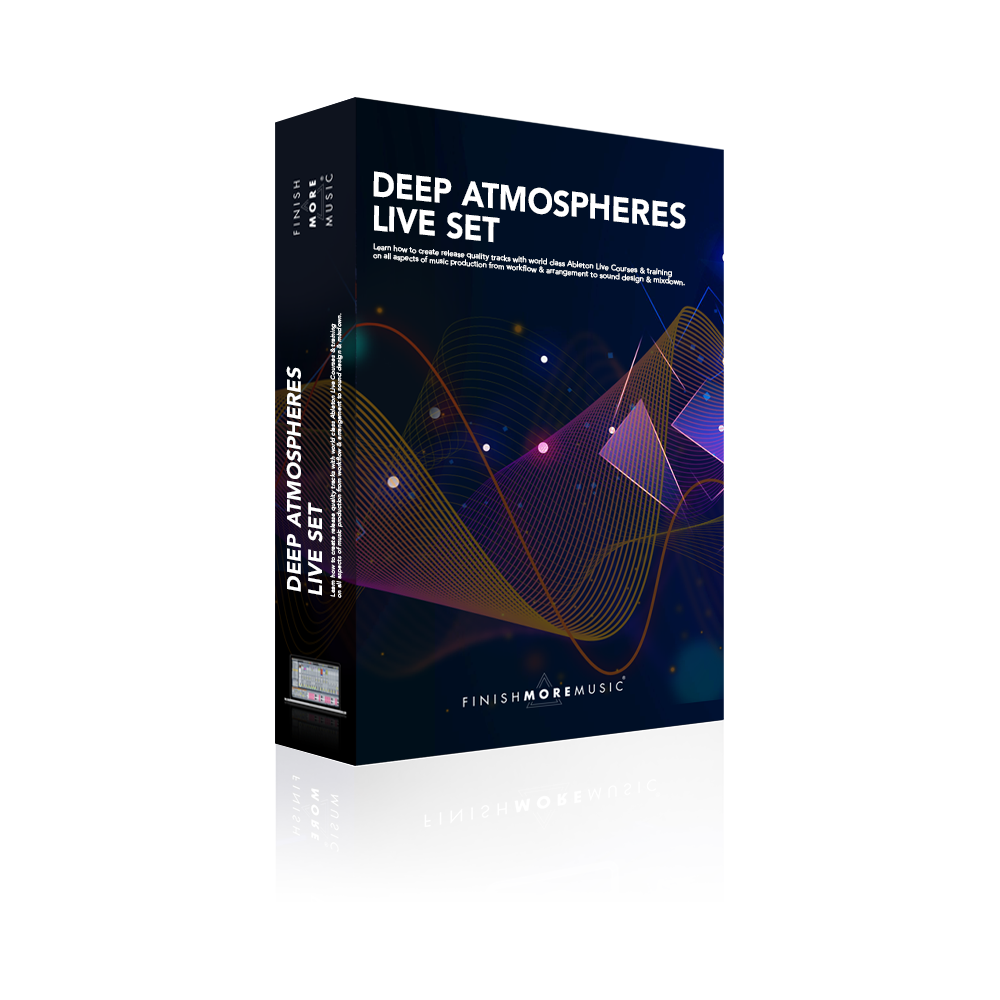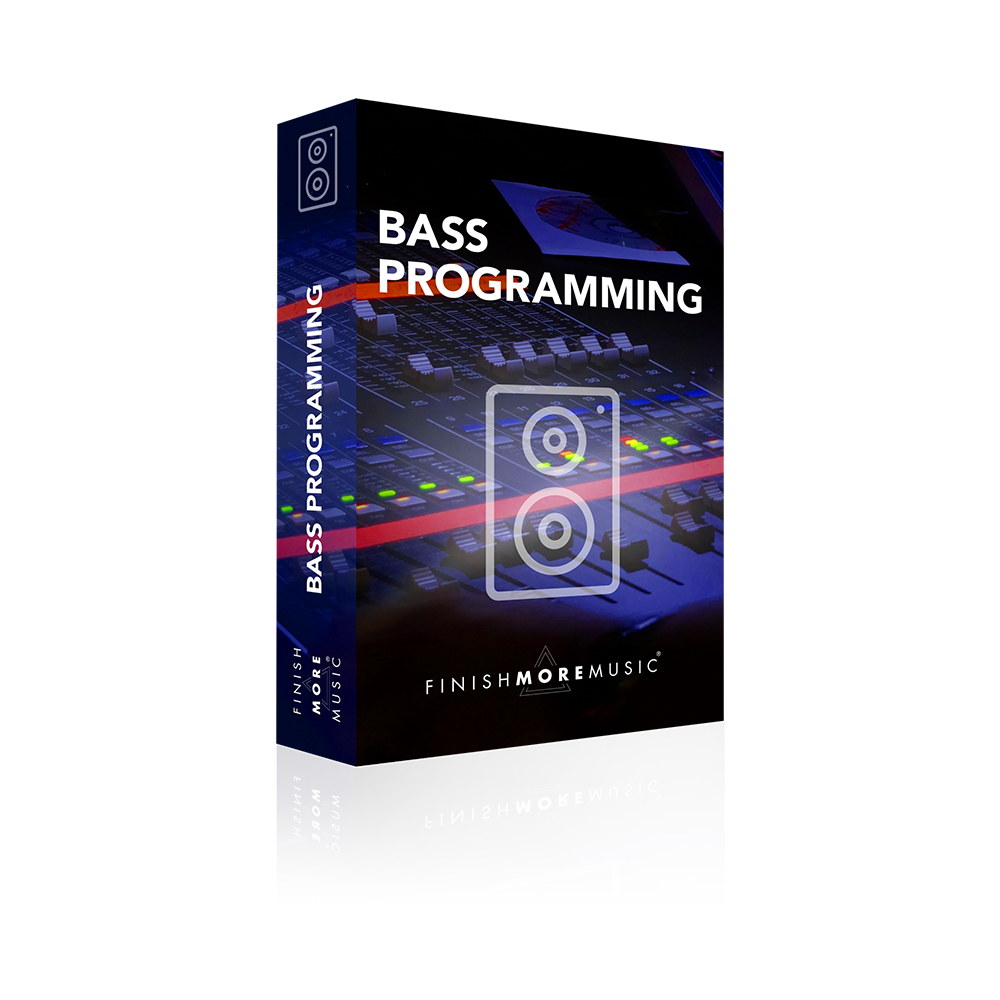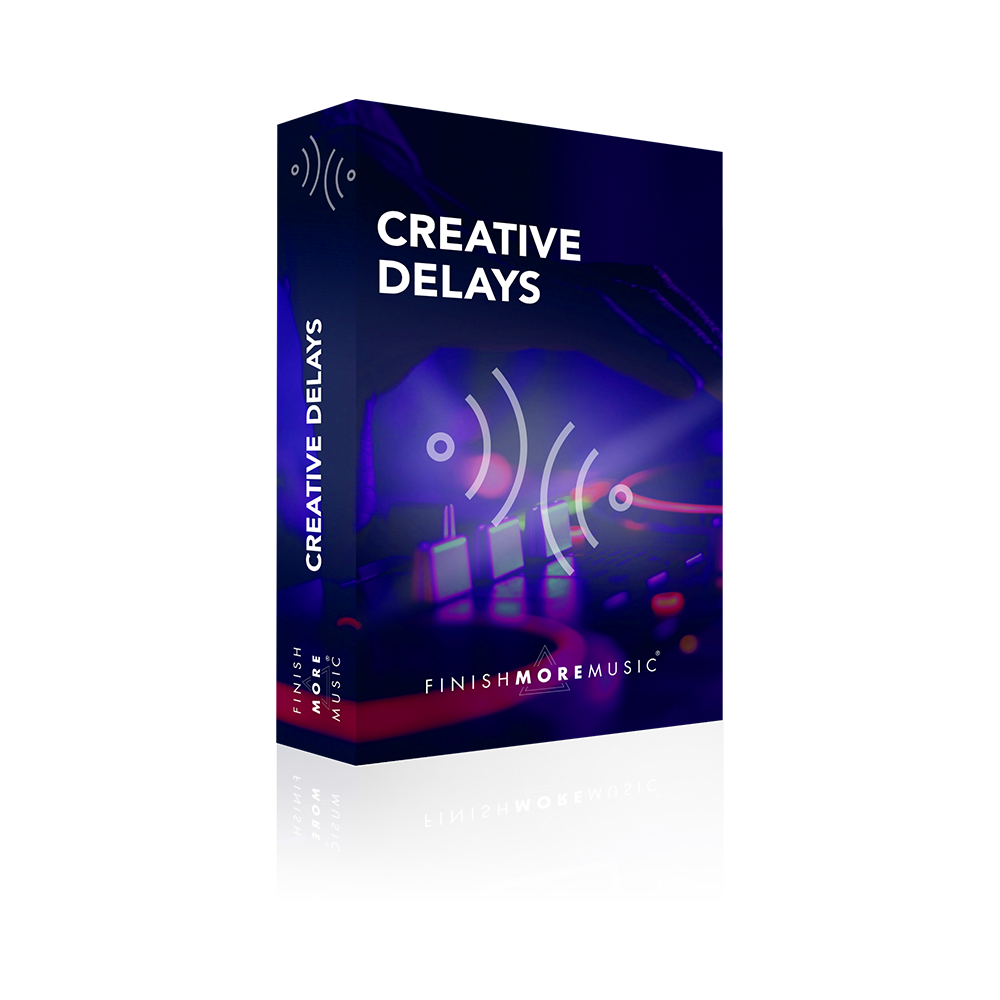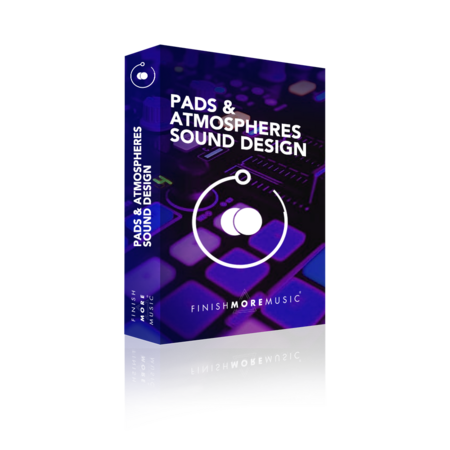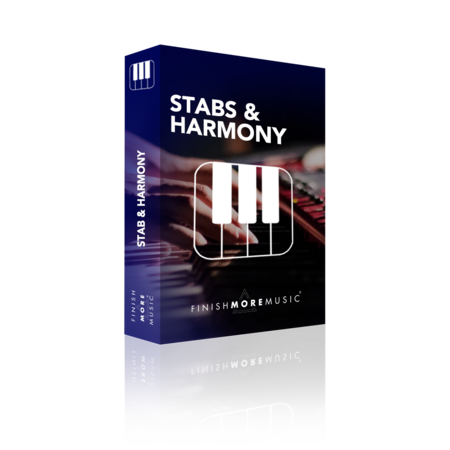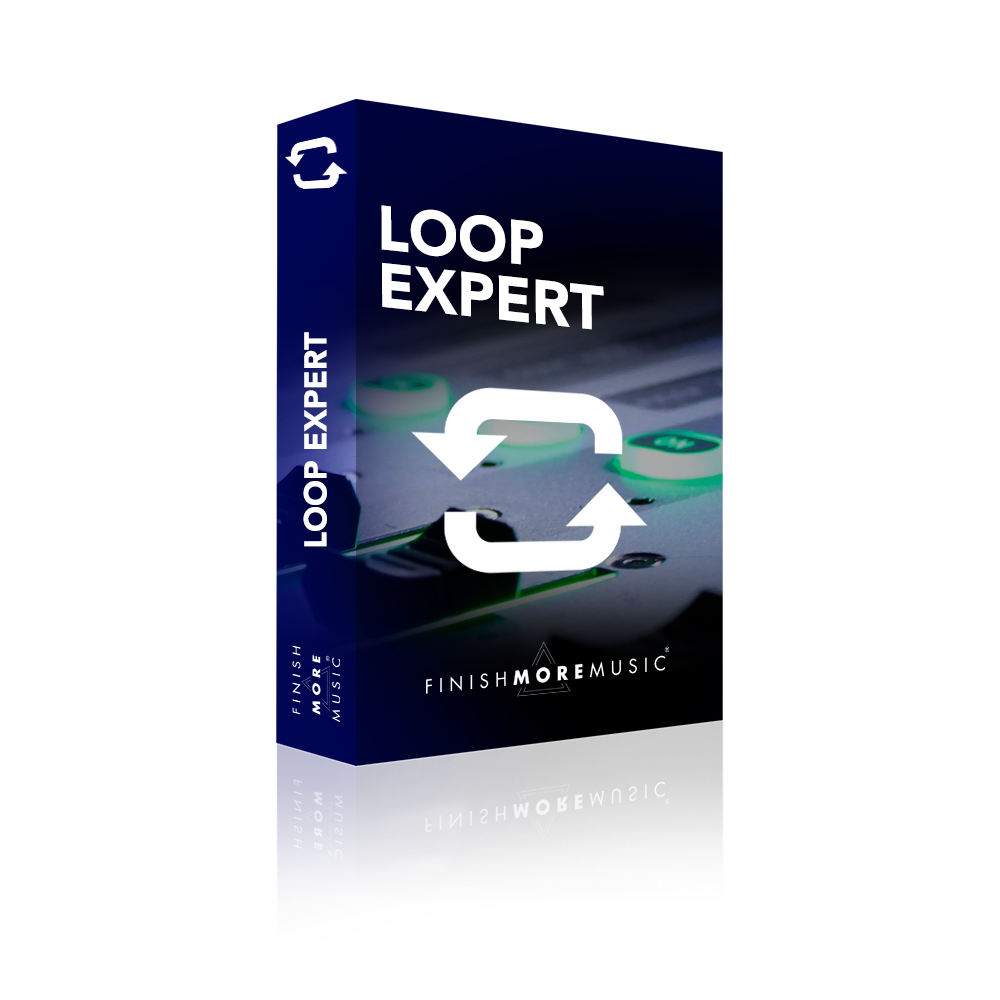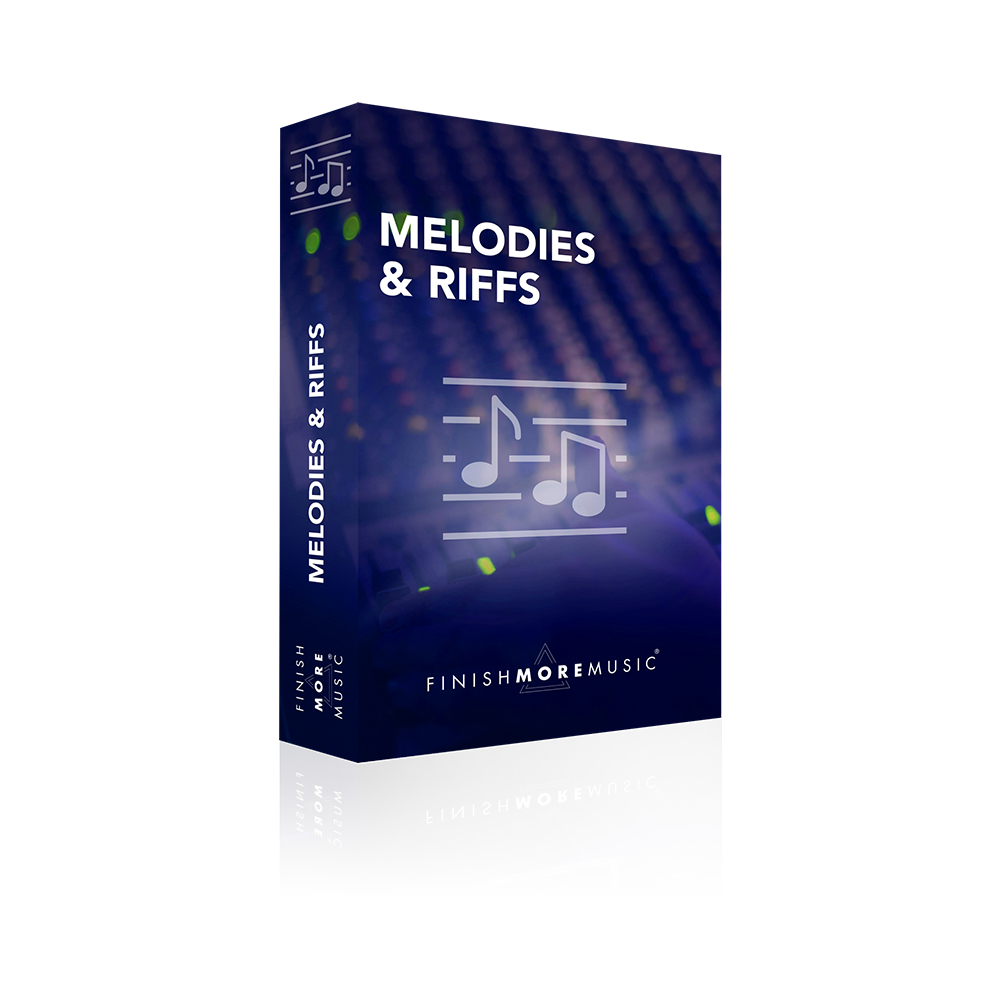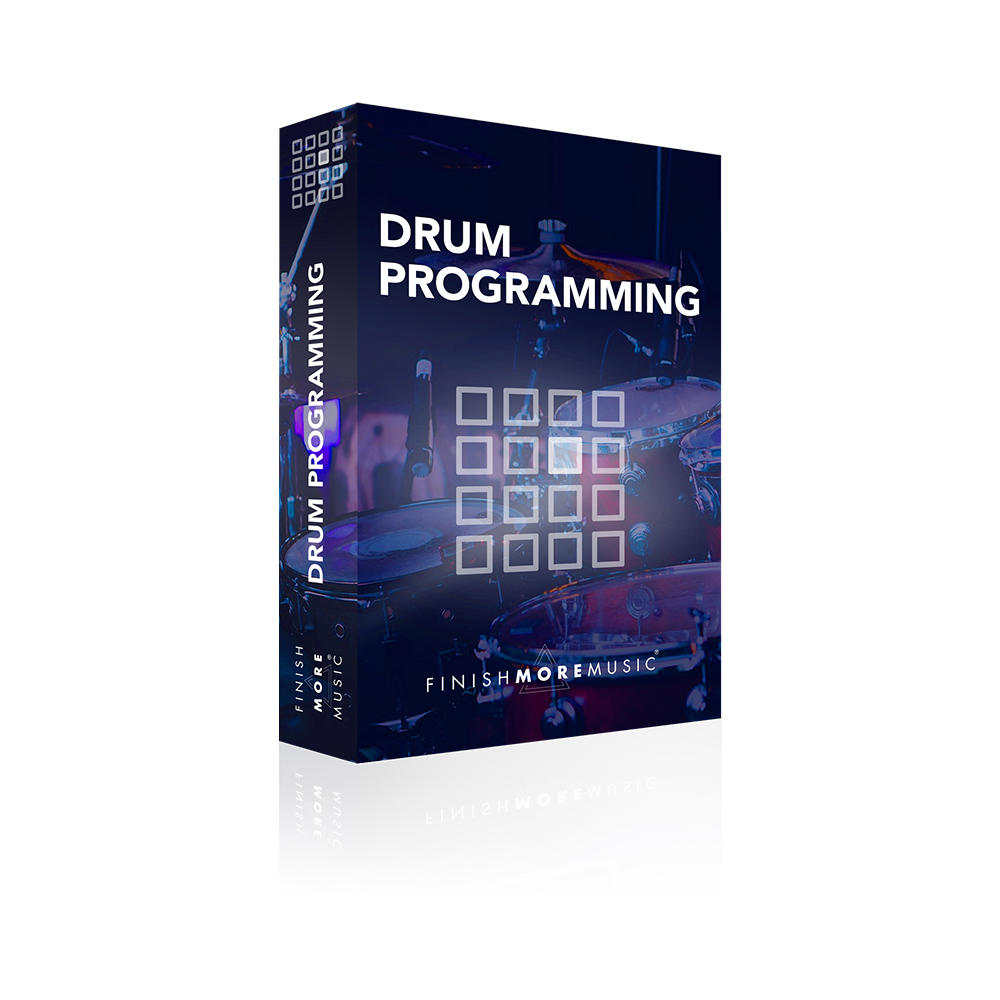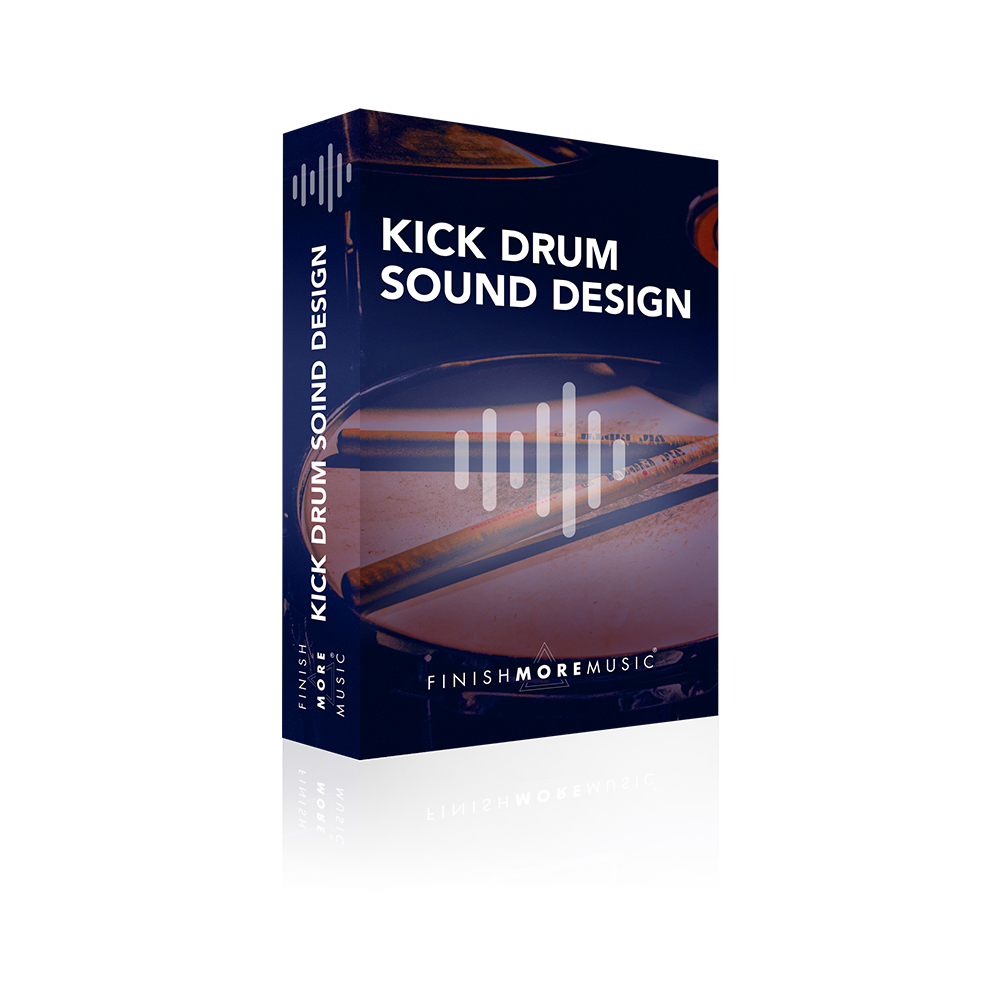Keith Mills: (00:02)
Hi, I’m Keith Mills. And this is episode number 90 of the Finish More Music Podcast. And today we’re going to be talking about your reason why. Now all of the pros are able to keep going when things get tough, when they feel like everything is going against them, when they run into creative blocks, when they feel like giving up and when they start questioning why they are actually doing what they’re doing. Now, one of the reasons they’re able to do this is that they have a strong purpose. They can tap into a deep connection to the reason why that powers their love for being a creative and a music producer. Without this, it’s easy to grind to a halt and to cave in when things aren’t going your way. So how do you create your reason? Why, how do you tap into it? What does one even look like? And what should it definitely not be in this episode? We’ll answer all of these questions are more so let’s get stuck in.
Keith Mills: (01:11)
This is the Finish More Music Podcast, a show for underground dance music producers who want to finish more and better music, and to share it with the world, my name’s Keith Mills, and every week we’ll dive into the mindset and creative strategies that will help you to move further and faster along your music production journey.
Keith Mills: (01:45)
Hello, and thank you for joining me for another episode of the Finish More Music Podcast. So I want to kick off with a big shout out, a big thank you to everyone who hit me up on Instagram with book recommendations on rest. So a couple of episodes go, we discussed rest in detail. And particularly this idea that building rest into your day into your week actually increases your productivity and makes you happier and is better for your health versus plugging away, relentlessly not taking any breaks under the illusion. That you’ll be more productive because you’re not resting. You’re filling every hour with work. And this is saying I’m really passionate about learning more about, and so at the end of the episode, I said, look, guys, can you hit me up on Instagram and, you know, fire a DM over @iamkeithmills and loads of you did.
Keith Mills: (02:43)
So thank you very much. Got a huge library of books on the topic now. And it was really fascinating hearing, similar experiences that you’d had and different sort of turning points where you had the realization that you were pushing things too hard and you weren’t getting a better outcome as a result of it. And by backing off, actually, more’s getting done in your you’re happier in the process. So thanks very much for the feedback on it. And also for everyone who reached out about last week’s episode with Matt Bushwacka and his partner, Belinda, and listen up, their new meditation and therapy offering got so much good feedback about that as well. And they’re over the moon. Of course, I pass it all on to them. So thank you.
(03:28)
This week just gone has been absolutely incredible. The standout highlight for me, and I think most people in FMM was our man, Nick Muir, who, if you haven’t heard the podcast yet, did an amazing interview with him.
Keith Mills: (03:44)
Episode number 64. So Nick is John Digweed’s producer, amazing, amazing producer. And he came in and gave a masterclass for the members of FMM. And when I say a masterclass, it’s a real one. So there are a lot of these people out there. It’s how we got our master class. And it’s more of what I would call a chit chat. And that’s cool. You know, that’s, there’s nothing wrong with that. But when we say master class, we mean it. And so he came in, I opened up two of these projects, like big projects releases, a remix with John, one of his own pieces of work and deep dived into everything about those tracks. So like all of the tips, the tricks, the mindset, and importantly, the reason why, why do I do this? Why does this work on a dance floor? Why does this evoke this emotion in people?
Keith Mills: (04:40)
How do you sort of save time here? How do you get this right? Mix it and all of these different things. And we have a big Q and A as well that when we’re there hundreds of members online and it just provided like this huge spark as if one were needed in our community, it just took things up another level. Absolutely incredible. And then we always do like a thread of takeaways and it’s pages long like pages and pages long. Now here’s the reason that I’m specifically talking about this as well. And that’s because it’s inspired this week’s podcast, because one of the things that I absolutely love about Nick, whenever I talk to him, when we add him on for the interview, had him in for a workshop where he worked really closely with the guys of FMM+ my high level mentoring group and in the master class, everyone talks about it.
Keith Mills: (05:34)
And it’s his passion for writing music and you don’t sustain a career over three decades at the top of underground electronic music as a producer and DJ, if you do not love it. And he does, and it comes through every single time. And so that got me thinking about this week’s podcast episode. And so here’s my question for you. What’s your reason why? Why does writing music light you up? Why does being involved in music production light you up? Why are you following this journey? So I’ve got a challenge for you by the end of this podcast or at the end of this podcast, write down in no more than three words, preferably one word, your reason why. And then you’re going to put this on a post-it note and you’re going to stick it on your computer monitor, where you can see every single day without fail.
Keith Mills: (06:40)
Why would you do this? Why am I setting this challenge for you and asking you these questions? Well, here’s the deal with anything in life, particularly with creativity, the going is going to get tough. There’s no good pretending don’t be under any illusion that it’s always going to be a bed of roses or that you’ll ever get to a point where it is that won’t happen. All of the world’s greatest creators, whether they be musicians, music, producers, playwrights directors, authors, choreographers, the people at the top of their game. It’s not a piece of cake every day. It gets tough. And when you’re going through a part of your creative journey, that is really, really difficult and challenging and making you doubt yourself, having a strong reason why a purpose, something that is so short, concise, punchy, and hits you like right in the soul. It’s like straight to the heart of why you do things that’s going to sustain you.
Keith Mills: (07:51)
That will carry you through every single time because this journey is difficult and you do have to have the stomach for the fight. Otherwise it will win. There’s elation and misery there’s times when it runs smoothly times when it’s rough times, when it’s all untangled times when it’s caught up in and not there are peaks, there are troughs. There are weeks where you cannot seem to get a good idea for love nor money. And yet just the week before you were on fire. And it can just turn almost to the click of a finger from feeling amazing to like, wow, what has happened here have I lost it? And of course the internal questioning and doubts can come up. There are tracks that you write and they just flow beautifully. And there are sometimes there are ones you’ve got to wrestle with and it feels like you’ll never get it over the line.
Keith Mills: (08:51)
Then of course there are rejections from labels. There’s negative feedback. If you’ve written something that really, you know, was it a level up from where you’ve been? And then some people who aren’t too great with their words, even with the best of intentions. And this is one of the reasons we teach everyone in FMM, how to give feedback, because it’s not as simple as just turning up saying what you think there is a way to encourage people and to get them to take action and to learn and to grow. And even with the best of intentions, if you don’t have that formula, if you don’t have those ingredients in that recipe, you can mean well, but completely slapped someone them. So you have the people who mean well, and then you have the trolls, right? You have the people who are out to deliberately try to hurt you, hurt people, hurt people.
Keith Mills: (09:45)
They’re the people who are really struggling. They’re the people who are feeling more pain than anyone else because they give themselves such an unbelievable hard time. And then that always mirrors outwards, but they’re out there. So creativity is difficult as a journey, there are the most amazing highs connecting with people, reaching your ambitions, accomplishment at hearing your music played out by your idols. There are so many amazing things, benchmarks, milestones, seeing your progress. But there are times when it gets rough, we live in a universe of duality and anything we do, there’s easy and there’s difficult. That’s how it, that’s how it plays out opportunity combined with difficulty. That’s the universe in a nutshell.
Keith Mills: (10:37)
And that’s why it’s so important to have a purpose, to have a reason why something that you can rely on that will keep you going. That will sustain you. And one that is always with you. So it’s something you can hold on to. It’s something that is a guiding light for you. When those doubts start creeping in, it’s the food, it’s the vitality. If you like for your inner coach to fight and to overcome the inner bully or for the light wolf to strengthen it versus the dark Wolf. So you may have heard that old, I think is an Indian proverb, but there’s a battle between all of us in all of us, sorry, between the light Wolf and the dark Wolf, which one will win the one you feed the most. And that’s what having a strong reason why does. It feeds the inner voice that you want to hear the Wolf that you want to win the fight. So it becomes your mantra. And that’s what I’m saying. Keep it super short and punchy three words maximum. If you can get it down to one word, great, this isn’t easy. It sounds easy when someone says three words or word, but we all know that getting these, when we really comes to it, boiling it down and being succinct is really challenging, but I promise you it’s so worth it.
Keith Mills: (12:03)
And this goes hand in hand with a few of the other things we’ve talked about, and I’ll just quickly sort of wrap these up into a nice bundle. We’ve talked a lot about how vital it is to be surrounded by community and peers that get you and peers that can give you feedback and know how to do it, right? It’s something that will get you through the tough times. It’s something that will accelerate your progress. Being lifted up by others. Episode eight, 92 episodes ago. Can you imagine it was called going it alone is madness. So that’s one to definitely check out another one is vision, right? This idea that if you don’t design your life, someone else will. If you don’t map out your life, as you want it, you don’t lean into that. You don’t pursue it. Other people and other things will take your time.
Keith Mills: (12:52)
So there’s an episode on that. I’m sure the guys we’ll link it in the show notes. I’ve forgotten the number of that one. And then you can add this mantra. There’s a reason why to that list. Those three things are so impactful. They’re so powerful when you’ve got them all on your side, when it’s difficult, when it’s tough, when you, the doubts start creeping in your power through. And the beauty of having the mantra is it’s a quick snapshot. It’s like an, almost an instant fix. It’s there with you all the time. It’s like the click of the fingers as it happens in a millisecond. So it is a really powerful tool to add to your kit. So I want to give you a big tip. One of my biggest tips on this and that is to make your mantra, your purpose, your reason why intrinsic.
Keith Mills: (13:38)
So what do I mean by that? Well, intrinsic is something that is an internal reason to you. It’s inside of you. Examples would be things like fulfillment, writing music fulfills me or self discovery or learning or curiosity or experimentation or personal development here. How they’re all internal to you. The opposite is extrinsic. So extrinsic reasons why? So these are things that are typically driven by external rewards, money, fame, recognition, praise, and these things aren’t necessarily bad. But the reason that I recommend keeping intrinsic is because extrinsic i.e. outside of us is also outside of our control. Even when you think about it, the quality of your music, if you were to only write music, because you want to write quality pieces of music, what happens when you’re not writing quality pieces of music? What happens if you do hit a block, if your purpose is to write quality pieces of music and that’s not happening well, there’s going to be a struggle.
Keith Mills: (14:57)
And whilst we can absolutely influence quality, we can’t control it. Nobody gets to go in the studio and say, today, I’m writing a banger. Today is the day I write my best piece of work. It doesn’t work like that. We can build the environment, the creative process and knowledge to heavily influence this, but there are always peaks and troughs. So anything extrinsic is outside of our control, which means it’s unstable, which means it’s unreliable. And often times these things that we set our way out into the future. So we may have set, you know, wanting to achieve something big and exciting. And if that’s the sole reason why that we’re writing music is often way out in the future. So again, it’s out of our control and it’s hard to bring it into the now when we need it most. So anything external is out of control is unstable is unreliable.
Keith Mills: (15:55)
And when the going gets tough, you’d of course prefer to have something that you can count on right now. Of course, now I want to be really clear. It’s not that we don’t have these beautiful extrinsic motivators. In fact, they’re amazing to build into a vision, to inspire action in us, things to look at and to project into and things to carry us in the studio. But once you get in there, I recommend keeping it intrinsic as your driving force because it’s immediate and it’s always there. Intrinsic motivation, reason why, purpose is always there. All you’ve got to do is turn up. It’s as easy as that. So let’s think of some examples. If we go to the idea of fulfillment, that means the process of writing music is feeding your soul. It’s fulfilling the process of doing it. Not the outcome. Extrinsic is going to be based always on the outcome.
Keith Mills: (16:54)
So it doesn’t matter if you write a song, a track that you’re not in love with. You love the process of it. The art of bringing something new into the world. Personal development, even if the track is something you don’t like, it will have taught you something you will have learned. You will have grown, right? So whether it’s good, bad, ugly, whether you’re going through a period where you’re blocked or whatever’s going on. The fact that you’re looking at it as an opportunity to learn and grow, you know that you’re always taking something from it. You’re always going to be better off because of the experience. Self discovery, how you react when things are going well, or when things are difficult. And when they’re tough, that in itself is a lesson for you. How you react to a rejection from a label is as important.
Keith Mills: (17:47)
Arguably more important than how you react. When a track is accepted, how you react to bad feedback versus good, or I should say negative versus positive, well delivered versus poorly delivered how you react when things are in and not the building of your character, of who you are of your identity, right? Curiosity, experimentation, and new things are always happening. No matter what the landscape is, when you’re being creative, you’re doing something new. It’s the act of using original thoughts, ideas, and actions to create an original production has always something original and new. So you bring this aura, this like ethos, like you would a kid. I wonder what happens if I wonder why this has happened? Like this almost like a scientist, the result that you don’t expect is as good as the result that you do expect because you learn from it. You discover something new.
Keith Mills: (18:48)
How exciting. So can you see are much more powerful as a reason why intrinsic is versus extrinsic, which is unstable. If a track has gotta be good, maybe it is maybe isn’t well, that support mechanism is all of a sudden ripped out from underneath us. So intrinsic is the way to go. So my big tip, right? So as a summary to this episode, one of the reasons that we have a legend, like Nick Muir, who is able to sustain a career that spans three decades is because he has a strong reason why a strong, unwavering passion for music, all of the pros do in any walk of life, any successful person couldn’t possibly have gotten to the top of where they are. If they weren’t able to tap into a burning desire, a burning passion as to why they do what they do when things aren’t working out.
Keith Mills: (19:49)
So that’s the question what’s yours. What reason is going to sustain you? What reason will make you relish and embrace challenges rather than being knocked flat by them? And when you’re really truly tapped into this, you’ll get it down to three words. You’ll get it down to a word. Maybe it’s one of the things that I’ve said, fulfillment, personal development, self discovery, curiosity, experimentation, one or two words there, right? Maybe it’s one of those. Maybe it’s something else, but it’s gotta be something that you know is always there. No matter what, when you get that dialed in, and if you want to stick vision and community on the top of it, boy, you’re going to be unstoppable or go. You’re going to be unstoppable. It was a figure of speech, but I want to be a super inclusive there for sure. Whoever you are, you’re going to be massively unstoppable.
Keith Mills: (20:44)
Right? Go it’s it’s just simple logic. Say, here’s what I want you to do. Have a good think about this. Don’t stress. If it takes a week or two weeks, cause it might, it might come to you straight away. It might take awhile. You might come up with something and then in a week go. No, that’s not it. And that’s okay. So voyage of discovery, but when you’ve got it, scribble it down, post it, note boom, on your monitor, pick up your phone and come onto Instagram and DM me with it at, @iamkeithmills. I’d love to hear what it is. It’d be one word or three words. What’s your reason why what’s the deep passion that sustains you to keep this going no matter what so hope you enjoyed that. Hope you, you found it useful. The show notes finish more music.com forward slash zero nine, zero 10 off of the big 100 like countdown now and how exciting love it. As always, if you enjoy the show, if you haven’t hit subscribe yet, do make sure you do it. So you don’t. Yeah.
Speaker 2: (21:48)
Let me say out. Sometimes we have more than one episode a week. Make sure you’re always stayed in the loop. Do take care and catch you next week.
(22:03)
If you’re serious about getting your music heard and climbing the ladder as a music producer, one of the skills you absolutely must master is remixing. That’s why I’ve put together a brand new completely free ebook for you called the art of remixing. It features the most prolific remixes from my finish more music community, sharing their strategies for creating successful remix projects, ready for you to share with the world. So jump over to www dot, finish more music.com forward slash remix and download your free copy. Now you’ll learn technical setups for creating your remix. How to add your own flair whilst respecting your original artists track how to create quickly to a tight deadline, how to extract melodies and harmonies, and so much more, as well as taking the opportunity to get more of your creative output into the world.
Speaker 2: (23:03)
Remixing is an amazing tool for building connections with other artists and strengthening your relationship with label owners in short remixing is essential. Try to think of a top level producer who doesn’t have a bunch of great remixes to their name. You can’t right? So make sure you master the art of remixing so that when your opportunity comes, you’re ready to take it with both hands and accelerate your growth in the music industry. The ebook is totally free. So dive over now to www.finishmoremusic.com/remix and grab your copy. See you in the next episode.
